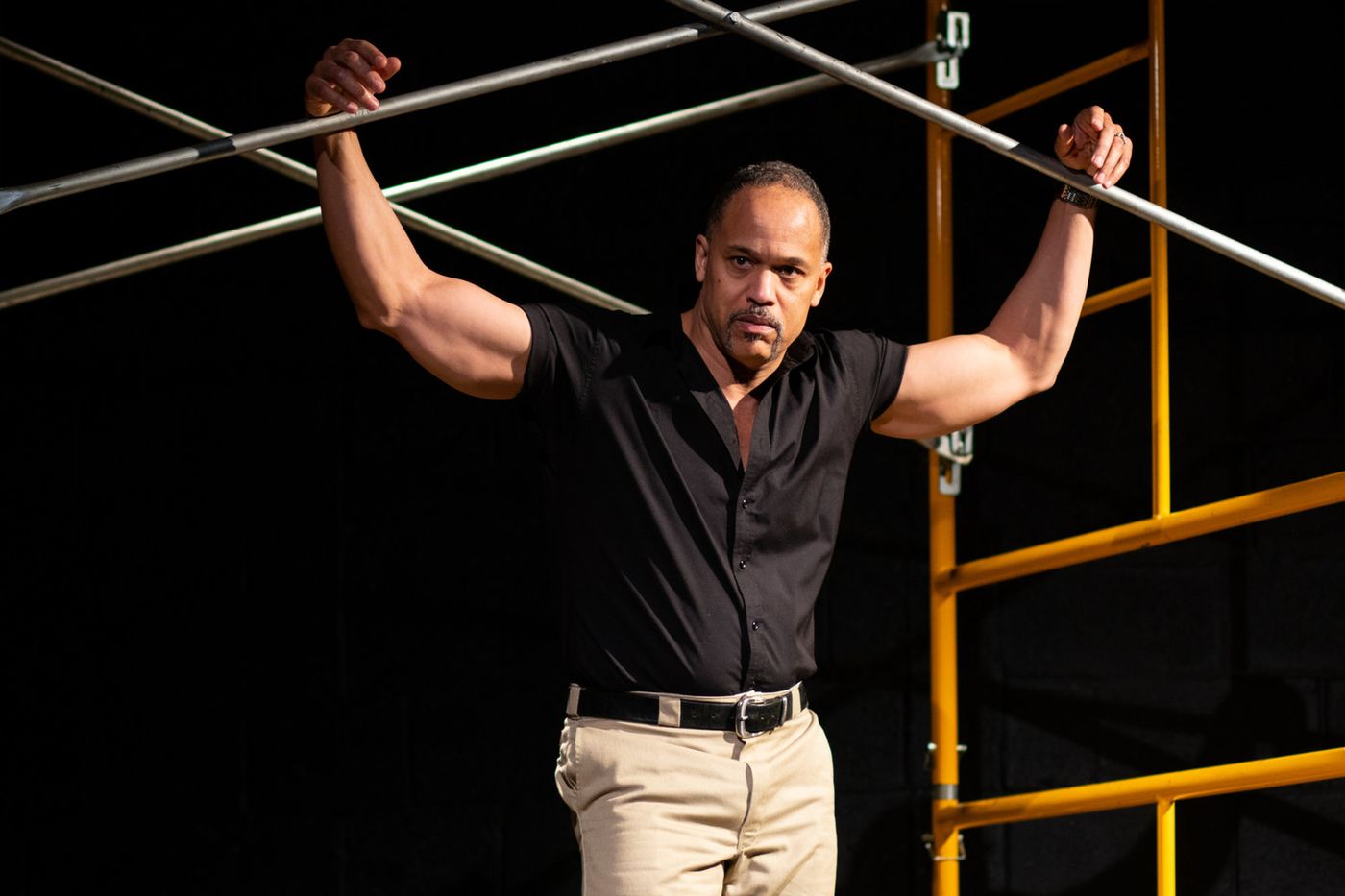Review: AMERICAN MOOR at Anacostia Playhouse

For any thespian, walking into a theatre evokes a myriad of emotions. There's the spark of the new and the weight of the past. Walking into the Anacostia Playhouse's black box theatre feels familiar, but as anyone who has endured the audition process will tell you, there is also a tinge of tension. The immersive and sparse set, with its typical backstage clutter, is evocative of a hundred other dark stages. This setting immediately sets up an interesting dynamic between the audience and an unnamed actor, played with exquisite depth by Keith Hamilton Cobb in American Moor.
What unfolds over the next ninety minutes is an intimate portrait of an artist and a cry of grief for the boundaries we impose upon our artistic lives and spaces. Using the role of "Othello" as both an anchor and a jumping off point, Cobb (who is also the playwright) skillfully takes the audience through a deeply personal examination of race and privilege in the theatre.
Cobb beautifully lays out a love-hate relationship with the character of Othello - a gut instinct to reject the monolithic stereotype and yet a need to protect and nurture the man beneath the warrior. He moves seamlessly between his own words and those of Shakespeare, talking as much to himself as to the audience. Cobb speaks eloquently of Desdemona seeing through to the little boy still inside of Othello, inside of him, and ruminates on the experiences of a young actor, of developing a love of Shakespeare, but being told to stick to those roles "that you could actually play".

With the introduction of an almost invisible director (played with nuance by Josh Tyson) who sits amongst the audience, the tone shifts. The forces that Cobb explored earlier in the performance are now given physical form and sound. Tyson's character embodies the privilege and entitlement too often found, and rewarded, in the arts community. Emphasis on the MFA degree, the dearth of paid internships, etc. create systemic barriers to theatre makers of color. They perpetuate a Euro-centric idea of who gets to make art and how.
Cobb's text also takes aim at the lack of funding in the arts, which leads to shortcuts in auditioning, in the rehearsal process, and in the production itself. Audiences, including critics, now accept "slightly above mediocre" as excellence. The stage is not currently set for any in-depth work that might remove these barriers, that might lead to greater understanding and to greater art. It is at this point in the performance that Cobb's frustration reaches its tearful peak. Both the actor and the director attempt to bridge the gaps between them, in experience, in vision. Whether they do or not in the end is left ambiguous.
In past productions, the director's lines were delivered off-stage or pre-recorded. Placing the character in the audience itself lends a whole new dynamic to the performance. The individual audience member is aware of the cringe-worthiness of the director and yet, by virtue of him being in their midst, feels a sense of involuntary collaboration. We, as the audience, want to be a safe space for Cobb's actor, to distance ourselves from the cringe-worthiness of Tyson's director. We are challenged to consider how we hold up the system of privilege and entitlement, even in ways of which we may not be consciously aware.
.jpg?format=auto&width=1400)
This production leaves us with much to unpack and to process. It is a statement to Cobb's passion for the project, and the issues it raises, that he actively engages with audiences in talkback sessions, academic conferences, and on college campuses. He is committed to learning as much from them as he hopes they do from him. Indeed, American Moor is the type of show that benefits from repeated viewing. Each performance has a slightly different energy and audience members will take away something new from each experience.
American Moor, directed by Kim Weild, runs through February 3, 2019 at the Anacostia Playhouse. Run time is approximately ninety minutes, with no intermission. For more information and to purchase tickets, visit anacostiaplayhouse.com.
The January 31 performance will be followed by a talkback with the playwright and Michael Witmore, Director of the Folger Shakespeare Library.
Follow Keith Hamilton Cobb's website for updates on the future of American Moor.
Reader Reviews
Videos

